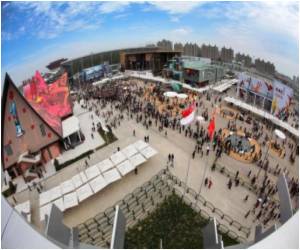
The hotel reportedly endured as Beijing's only private business even during the worst excesses of Mao Zedong's rule, when capitalists were often vilified, but was torn down in late December to make way for a government-backed modernisation project.
Its former owners say they have not been compensated and live in constant fear of arrest.
"Until we were demolished, the government always protected us," said Qiao Shuzhi, 63, the son of the inn's founder, who supported China's Communist Party when it was still an underground movement.
"Now it's not safe any more, so I won't stay there," he added.
His father Qiao Tianmin was granted a "Special Business Operation Licence" in 1953 by Beijing's chief of police, seemingly as a reward for his service to the communists as China fought against Japan.
Advertisement
The hostel began as little more than a spare room, where a single heated bed slept up to eight people each night -- a miscellany of farmers, builders and craftsmen who arrived in Beijing for work and were charged a pittance to stay.
Advertisement
It even survived the tumult of Mao's decade-long Cultural Revolution, launched in 1966, when those labelled "capitalist roaders" were beaten and even killed.
"That we remained open during the Cultural Revolution is really a miracle," Qiao recalled. His father -- who died in 1991 -- maintained it was protected on special orders from former Chinese premier Zhou Enlai, he added.
After Mao's death in 1976 the party sought to revive China's wrecked economy with pro-market reforms, and seized on the humble west Beijing boarding house as an example of the kind of private business they hoped to foster.
The People's Daily, the party's mouthpiece, ran a front-page editorial about the inn in 1979 headlined "Having more Mom and Pop stores is a good thing".
The party-run Beijing Daily said on its front page the same year: "That it survived the great calamities created by Lin Biao and the Gang of Four is a miracle... its existence has a reason."
The 1980s were a comparative golden era for business, Qiao said, as emerging entrepreneurs and migrant workers from across China headed to the capital, and a new building was added to cope with demand.
But the establishment soon faced competition from scores of other privately run hotels as the city transformed, and in latter years its guests were mostly poor travellers visiting family at a nearby hospital.
Last year the district government earmarked the inn and the surrounding streets as a "village within the city" -- a designation for dilapidated areas that usually precedes their demolition and replacement with new buildings -- and ordered locals to move out.
Such mass demolitions are common in China, where residents often complain they are poorly compensated for the loss of their homes by local governments who rely for income on land sales to property companies -- which have profited richly from the nation's economic boom.
In 2011 China outlawed violence during evictions and stipulated relocated residents must be paid market-rate compensation. But rights groups say these regulations are often ignored.
Qiao refused to leave, but returned home one morning to find two digging machines mauling the two-storey white-tiled building with his belongings still inside, he said.
He was seized by a group of unidentified men and held for more than 10 hours, he said.
"Our inn was celebrated as an example," he said. "We say that our home should not be demolished, and if it is then at least build us a new one."
Construction workers have fenced off the site, and local residents confirmed the hotel had been destroyed.
Local authorities declined to comment when called by AFP.
Now Qiao and his son Xuan, 33, live in a succession of small hotel rooms to avoid police scrutiny as they attempt to bring attention to their case.
The younger man glanced nervously around the room at a pile of clothes and a computer -- all the possessions they have left, they say.
"I feel like there are people searching for us," he said. "I keep having this fearful feeling."
Source-AFP









